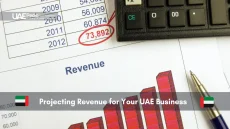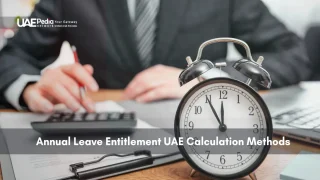What happens when career paths shift in a country blending global ambition with cultural tradition? The Emirates’ evolving labor framework ensures fairness for all—if you know the rules. Whether you’re an employer or employee, understanding how to handle work agreement changes protects rights and reputations alike.
Recent updates to the uae labour law emphasize transparency during employment transitions. Notice periods, severance calculations, and documentation protocols aren’t just formalities—they’re shields against disputes. Did you know failing to provide a 30-day notice could cost up to three months’ salary? That’s why we’re unpacking every detail like a trusted friend explaining desert navigation.
From contract nuances to cultural expectations, this guide illuminates the essentials. We’ll explore how clear communication aligns with legal requirements, ensuring smooth transitions without unexpected penalties. Shukran to the Emirates’ structured approach—it turns potential conflicts into respectful resolutions.
Key takeaways:
- Legal updates prioritize fairness in employment changes for both companies and workers
- Proper documentation and timelines prevent costly misunderstandings
- Severance pay is calculated based on the employee’s basic salary and length of service: 21 days’ salary for each of the first five years, and 30 days’ salary for each subsequent year.
Comprehensive Guide to Employment Termination Laws in the UAE
Imagine working in a desert metropolis where skyscrapers meet tradition – here, workplace rules evolve as fast as the skyline. The 2021 labour reforms rewrote the playbook for professional transitions, creating clearer guardrails for everyone involved.
Evolution of UAE Labour Laws: Key Changes and Implications
Federal Decree-Law No. 33 of 2021 didn’t just tweak regulations – it modernized the entire employment ecosystem. Think of it as a digital upgrade for workplace fairness. Notice periods are mandatory, with a minimum of 30 days for most roles, unless otherwise agreed upon in the employment contract, with flexibility for specialized positions.
Before these changes? Employers could terminate contracts without cause in some cases. Now, both parties share responsibility. One Dubai tech firm learned this when they tried ending a developer’s contract abruptly – the revised law required documented performance reviews first.
“The amendments ensure neither party faces abrupt professional sandstorms without warning.”
Three practical shifts emerged:
- Fixed-term contracts became standard, with a maximum duration of two years, renewable for similar or shorter durations.
- Part-time workers are entitled to end-of-service benefits, calculated proportionally based on their working hours compared to full-time employees.
- Dispute resolution timelines have been streamlined, with individual disputes typically settled within 14–60 days.
Smart companies now train managers in cultural compliance – blending legal checklists with Emirati values of mutual respect. Employees? They’re learning to track service years like coffee cards, ensuring every workday counts toward proper severance.
Essential Legal Requirements for Employee Termination in the UAE
Navigating professional transitions in the Emirates requires understanding both the letter of the law and the spirit of fairness it upholds. Let’s unpack the essentials for smooth transitions—like learning the recipe for karak chai: precise measurements with room for personal touches.
Notice Period Obligations
Think of notice periods as a mutual courtesy—a chance to wrap up projects or find new talent. Employers are required to provide a minimum of 30 days’ notice, which may extend up to 90 days for certain specialized roles, as stipulated in the employment contract.. Both parties must maintain productivity during this time. Skip the notice? Expect compensation equal to three months’ salary—a rule that recently saved a Dubai marketing manager from sudden income loss.
Severance Pay and End-of-Service Benefits
End-of-service rewards reflect your journey. For the first five years, you earn 21 days’ wages per service year. Beyond that? Each year adds 30 days’ pay. Imagine working six years: 5 x 21 days + 1 x 30 days = 135 days’ compensation. Many HR platforms like Bayzat now auto-calculate this, blending tradition with tech efficiency.
| Service Duration | Calculation Formula | Example (AED 10k Salary) |
|---|---|---|
| 1-5 years | 21 days/year | AED 70,000 for 5 years |
| 6+ years | 30 days/year | AED 30,000 for year 6 |
Smart negotiations often include phased payments or extended benefits—like helping an employee’s family with school fees. As one Abu Dhabi HR director shared: “We treat departures like airport goodbyes—planned, respectful, and clear on next destinations.”
For part-time employees, end-of-service benefits are calculated proportionally based on their working hours compared to full-time employees. This ensures equitable treatment across different employment types. Ref.: “End of service benefits for workers in the private sector. UAE Government Portal.” [!]
Termination Procedures in the UAE: Step-by-Step Compliance Guide
Navigating the end of an employment contract here feels like preparing for a desert crossing—proper planning ensures everyone reaches their destination safely. Whether parting ways amicably or addressing performance issues, the Emirates’ framework turns potential chaos into orderly transitions.
Employers are required to provide a minimum notice period of 30 days when terminating an employment contract, unless a longer period is stipulated in the contract. Failure to adhere to this can result in compensation equivalent to the notice period. Ref.: “The Notice Period Under UAE Federal Decree by Law No. (33) of 2021. Legal 500.” [!]
When Both Sides Agree: The Mutual Exit Playbook
Mutual terminations work best when treated like a well-choreographed dance. Start with a written agreement outlining severance terms and last working days. A Dubai hospitality company recently used this approach, allowing a chef to leave early for family reasons while securing a positive reference.
“Clear documentation is your safety net—it transforms handshake deals into enforceable commitments.”
Three essentials for smooth mutual exits:
- Signed termination letters specifying the agreed period (minimum 30 days)
- Final settlement calculations reviewed by both parties
- Official cancellation of work permits within 10 working days
Addressing Performance Challenges: Lawful Dismissals
Involuntary exits require more careful steps. Valid circumstances include chronic absenteeism or safety violations. Employers must provide written warnings and document performance issues before proceeding with termination, ensuring compliance with legal requirements.
| Step | Mutual Exit | Involuntary Exit |
|---|---|---|
| 1 | Joint agreement drafting | Written warning issuance |
| 2 | Notice period confirmation | Investigation process |
| 3 | Final settlement payment | Termination letter delivery |
Pro tip: Use timestamped digital logs for all communications. One Sharjah tech startup avoided legal drama by sharing cloud-based performance records during a disputed dismissal. Treat paperwork like sunscreen—apply thoroughly before heading into tricky situations.
Understanding Notice Periods and Contractual Obligations under UAE Labour Law
Notice periods act like professional bridges—connecting current roles to future opportunities while maintaining workplace stability. Let’s explore how both teams and individuals can cross this bridge smoothly, balancing legal requirements with practical collaboration.
Employers must settle all dues, including final salary and accrued leave, within 14 days of an employee’s termination date. This prompt settlement is crucial to avoid legal disputes. Ref.: “Termination of Employment in UAE Law 2025 – Rules & Cases. Labour Lawyer Dubai.” [!]
Employee Responsibilities During the Notice Period
Think of your final weeks as an encore performance. You’re expected to:
- Complete assigned tasks with the same diligence as day one
- Document workflows for successors—like leaving a treasure map for the next explorer
- Avoid poaching clients or sharing sensitive data (yes, even if you’re heading to a competitor)
A Dubai sales director recently used her notice period to train three junior team members. Her initiative earned glowing references and a farewell bonus. As one HR manager notes: “How you exit often determines how you’re remembered—and rehired.”
Employer Timelines and Legal Obligations
Companies must treat notice periods like airport departure boards—clear, timely, and precise. Key requirements include:
- Settling final payments within 14 days after the last working day
- Providing experience certificates upon request
- Maintaining health insurance until the official exit date
“We schedule exit interviews like coffee chats—it’s where we gather insights to improve retention,” shares an Abu Dhabi tech startup founder.
| Employee Action | Employer Requirement |
|---|---|
| Submits resignation letter | Confirms receipt within 48 hours |
| Works full notice period | Pays salary + accrued leave |
| Requests early release | Issues mutual agreement in writing |
Both parties benefit from clarity. Workers gain time to transition, while companies protect operations. For detailed notice period guidelines, bookmark our updated resource hub.
Handling Contract Termination and Early Dismissal Scenarios in the UAE
Picture this: Your office key card stops working on a random Tuesday. No warning, no discussion—just abrupt professional whiplash. While rare, sudden exits happen. Here’s how to navigate them like a seasoned navigator reading desert stars.
Immediate termination without notice is permissible under specific circumstances, such as gross misconduct. However, employers must provide documented evidence to justify such actions to avoid legal repercussions. Ref.: “Federal Decree-Law No. (33) of 2021 Regarding the Regulation of Employment Relationships. MOHRE.” [!]
When the Rulebook Gets Tossed
Articles 44 and 45 of Federal Decree-Law No. 33 of 2021 outline circumstances under which immediate termination without notice is permissible, such as gross misconduct or breach of contract. Valid reasons include:
- Physical assault at work
- Confidential data leaks
- Chronic absenteeism (15+ days/year unexcused)
A Dubai tech firm recently invoked Article 45 after an engineer shared client blueprints. The court upheld their decision, but required three months’ wage compensation since proper documentation existed.
“Sudden exits demand ironclad proof—think timestamped CCTV footage, not hearsay.”
Financial implications? If you’re on the receiving end:
- Employers owe full end-of-service benefits
- Compensation equals notice period wages (usually 1-3 months)
- Unpaid overtime must be settled within 14 days
Take Ahmed’s case: A sales manager was dismissed after missing targets for six months. The court ruled it wrongful termination because his contract didn’t specify performance rules. He received eight months’ salary as compensation.
Turning Legal Storms into Drizzles
Smart mitigation looks like:
- Documenting incidents with HR within 48 hours
- Requesting written clarification of alleged violations
- Seeking mediation through MOHRE before escalating
One Abu Dhabi nurse avoided a messy exit by presenting her shift logs—proving she’d worked 12 months without required breaks. The hospital revised their approach, offering a mutual separation package instead.
Remember: Knowledge of the rules protects both sides. Keep labour law bookmarked like your favorite coffee shop’s menu—you’ll want quick access when things get bitter.
Resolving Post-Termination Disputes and Understanding Non-Compete Clauses in the UAE
Ever tried untangling fairy lights after a sandstorm? That’s what post-employment conflicts can feel like without clear guidelines. The UAE’s legal system offers structured pathways to resolve disagreements while protecting legitimate interests.
Non-compete clauses are enforceable in the UAE if they are limited in duration (not exceeding two years), geographic scope, and the type of work prohibited. Overly broad clauses may be deemed unenforceable. Ref.: “Legal: Non-Compete Clauses in UAE Employment Contracts. TME Services.” [!]
Legal Recourse for Wrongful Termination
The Ministry of Human Resources and Emiratisation (MOHRE) is the primary authority for resolving employment disputes, offering mediation services before matters escalate to the judiciary. Employees have 30 days to file complaints through their online portal—think of it as a digital majlis for workplace justice. Recent cases show:
- A Dubai accountant won reinstatement after proving her dismissal lacked documented cause
- An Abu Dhabi firm recovered client data by proving a sales director violated duties
“We’ve seen 78% of disputes resolve during mediation—it’s like having a wise elder guide both parties to common ground.”
Understanding Non-Compete and Non-Solicitation Clauses
Non-compete clauses restrict former employees from engaging in similar business activities that compete with their previous employer, within specified timeframes and geographic locations. Valid clauses must:
- Limit geographic scope (max: UAE-wide)
- Last ≤6 months for mid-level roles
- Exclude general industry knowledge
A Sharjah tech entity recently enforced a non-solicit clause when a developer recruited three colleagues. The court ordered compensation equal to six months’ wages.
“read also: Employment Visa UAE Processing Time and Cost”
Employer and Employee Rights After Termination
Both sides have shields and swords:
| Employer Protections | Employee Entitlements |
|---|---|
| Enforce non-compete agreements | Final wages within 14 days |
| Claim damages for stolen IP | Experience certificates on request |
| Restrict client poaching | Unused vacation payouts |
Pro tip: Draft separation agreements like prenups—clear, fair, and anticipating future what-ifs. One Ras Al Khaimah hotel uses templated exit docs that outline services restrictions and reference protocols.
“read also: Working Hours Regulations UAE Labor Law Guide“
Key Considerations for Business Transfers and Employment Waivers in the UAE
When companies merge like desert caravans joining forces, navigating employment transitions requires careful choreography. Business transfers often feel like resetting a clock—every gear must align perfectly. Workforce disputes often arise from ambiguous contract terms during business transfers, highlighting the importance of clear agreements and employee communication.
During business transfers, it is essential to issue new employment contracts and obtain signed waivers from employees, confirming the termination of previous contracts and acceptance of new terms. This ensures legal compliance and clarity for all parties involved. Ref.: “UAE Labour Law – The New Clause: Abrogation of maximum (3) three years term of the labour contract. Fichte & Co Legal.” [!]
The Rehire Roadmap
Transferring staff between entities? The law treats this as ending one journey to start another. Employers must:
- Issue formal employment termination notices for existing roles
- Create fresh employment contracts reflecting new terms
- Obtain signed waivers releasing previous obligations
“Waivers are your safety harness—they confirm both parties agree to reboot the relationship,” notes a Dubai legal consultant.
A Sharjah logistics firm learned this when transferring 200 warehouse staff. Their waiver templates specified:
| Old Contract | New Terms |
|---|---|
| Fixed 2-year duration | Renewable annually |
| 5-day workweek | Flexible shifts |
Even terminating employment without notice during transfers carries risks. One Abu Dhabi retail chain faced penalties after cutting 50 roles abruptly—they’d skipped required MOHRE approvals.
Smart strategies include:
- Consulting labor lawyers before drafting new agreements
- Hosting town halls to explain changes
- Phasing in revised benefits over 90 days
Remember: Transitions work best when treated as partnerships, not paperwork. Update contracts like you’d refresh a café menu—keep favorites but add exciting new options.
Read More:
Best Practices for Employment Termination Procedures in the UAE
Think of workplace transitions like planning a desert road trip—clear maps prevent wrong turns. Well-crafted employment contracts act as your GPS, guiding both teams through every curve. From our journey through the legal landscape, three essentials stand out.
First, treat every agreement like a shared compass. Contracts without precise terms create mirages—appearing solid until disputes arise. Document roles, expectations, and exit protocols as clearly as desert stars. One Dubai startup avoided a 6-month legal battle by specifying notice periods in their employment contracts.
Second, know when you may terminate collaborations—and how. Whether sunsetting a role or shifting careers, align actions with local norms. A Sharjah HR manager shares: “We train leaders to handle departures like Emirati coffee ceremonies—respectful, structured, yet warm.”
Finally, consult legal navigators early. Professionals help draft contracts without loopholes, ensuring smooth transitions. Remember: 73% of post-exit conflicts stem from vague clauses about intellectual property or non-competes.
With transparent agreements and cultural awareness, even challenging transitions can unfold like a well-rehearsed falconry show—precision meets grace. Here’s to building workplaces where every ending plants seeds for new beginnings.
Notice periods range from 30 to 90 days, depending on your contract type and role. Both employers and employees must honor this timeframe unless mutually agreed otherwise. Missing deadlines could lead to compensation claims.
Employees get severance pay based on their final salary and tenure. For unlimited contracts, it’s 21 days’ pay per year for the first five years, then 30 days afterward. Limited contracts may differ – always check your agreement or consult MOHRE.
Immediate dismissal without notice is only allowed for serious breaches like theft or safety violations. Employers must provide written proof. If you’re terminated unfairly, file a complaint with MOHRE within 30 days.
During probation (up to 6 months), either party can end the contract with 14 days’ notice. No severance applies, but employers must cover repatriation costs unless you’re moving to another UAE company.
Yes, if they’re reasonable in duration (max 2 years) and scope. Courts assess whether restrictions protect legitimate business interests without unfairly limiting your career. Geographic limits must be specific – “GCC-wide” often gets rejected.
If your company merges or sells assets, your contract typically transfers automatically. You’re entitled to retain existing terms unless you agree to changes. Refusing transfer? Negotiate an exit package – silent resignations risk losing benefits.
Absolutely. File a case at the labour court within 30 days of termination. Gather evidence like emails, payslips, and your contract. Wins often result in reinstatement or compensation up to 3 months’ salary plus unpaid benefits.
You’ll have 30 days to either find new employment, switch to a tourist visa, or leave the UAE. Employers must cover repatriation flights unless termination was due to gross misconduct. Keep your Emirates ID handy for grace period proof.


















